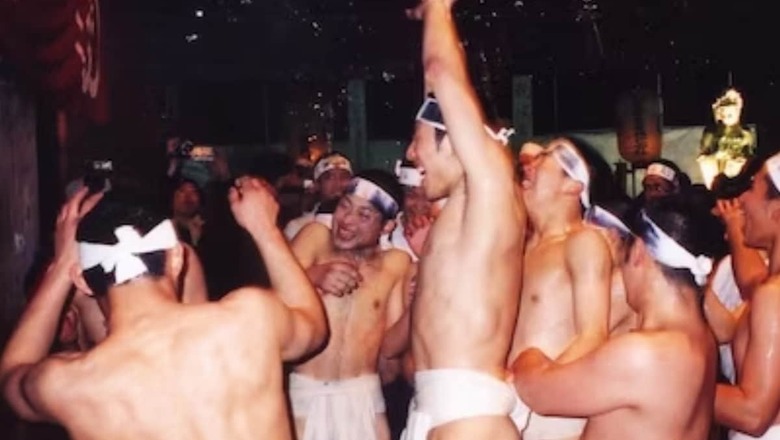
views
In its history of 1,250 years, the organisers of Hadaka Matsuri, popularly known as the ‘Naked Man’ festival, have allowed women to participate in certain ceremonies of the festival. The Hadaka Matsuri is organised by the Konomiya Shrine in Inazawa town of Japan’s Aichi prefecture. The ‘men-only’ festival involves men dressed only in traditional underwear scrambling to touch ‘shin-otoko’, or ‘god man’ who symbolises good fortune. The ‘shin-otoko’ spends days praying in isolation in days leading upto the festival. On the day of Hadaka Matsuri, he is shaved from head to toe and emerges from the shrine complex. Here other naked men scramble to touch him in a bid to ‘transfer’ their bad luck to him and get good luck from him. Many people also get injured in this ritual.
Women are still prevented from joining men in their bid to touch the ‘shin-otoko’ but they can make bamboo offerings to the shrine on the day of the festival. This year the Hadaka Matsuri will take place on February 22. As per some estimates, around 10,000 local men are expected to participate in the festivities.
Mitsugu Katayama, a member of the festival’s organising committee told the media, “We have not been able to hold the festival like we used to for the past three years because of the pandemic and, in the time, we received a lot of requests from women in the town to take part.”
Sumie Kawakami, a professor at Yamanashi Gakuin University, told the South China Morning Post, “I am very glad to hear this and it is a good sign that Japan is moving forward, although it is of course long overdue.”
She also theorised that perhaps the organisers were ‘forced’ to allow women to take part in the festivities because of large-scale migration that has led to a lack of participants in festivals. Kawakami explained, “I live in Yamanashi prefecture and I see lots of abandoned shrines, temples and graveyards around here, so it is clear that we need more people – regardless of their gender – to take part in these ancient traditions and to make sure they continue. I think more men are becoming aware of that and that they need to involve more women if they want this unique part of their local culture to continue.”
Back in December, the organisers of the Somin-sai festival in the town of Oshu, in Iwate prefecture, announced that the 1,000-year-old festival would take place for the last time on February 17 as there are not enough local people to take part in the annual festivities.
Earlier this year, the organisers of the 800-year-old Katsube Fire Festival also permitted women to take part in the festivities that took place on January 13 in the city of Moriyama in Shiga prefecture.
















Comments
0 comment